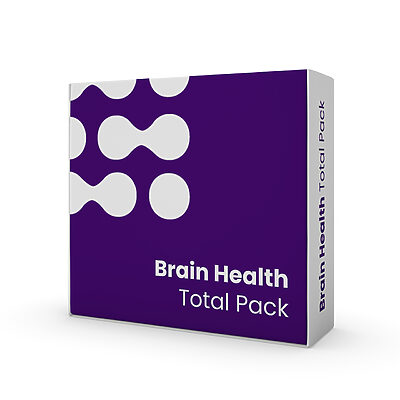
What Is CBG Oil?
If you’re looking for a comprehensive, natural solution to tackle inflammation and its debilitating effects, you’re in the right place. Welcome to the new era

There are so many ways you can benefit from magnesium. Magnesium is an essential mineral that plays a vital role in maintaining our health and well-being. It is involved in more than 300 biochemical reactions in the body, including energy production, muscle and nerve function, and bone health. Magnesium glycinate, a form of magnesium that is bound to the amino acid glycine, is becoming increasingly popular as a dietary supplement due to its potential health benefits. In this article, we will explore the benefits of magnesium glycinate, breakdown the top three ways you can benefit from magnesium, how it compares to other forms of magnesium, and how to incorporate it into your daily routine to improve your overall health.
Magnesium glycinate is a highly bioavailable form of magnesium, meaning it is easily absorbed and utilized by the body. Unlike other forms of magnesium that can cause digestive upset or laxative effects, magnesium glycinate is gentle on the stomach and does not typically cause these side effects. You will begin to notice signs of magnesium deficiency if you are tired throughout the day and are having difficulty sleeping. Over 70% of adults in America are deficient in magnesium
One of the main benefits of magnesium glycinate is its ability to promote relaxation and reduce stress. This is because glycine, the amino acid to which magnesium is bound, is an inhibitory neurotransmitter that can help calm the nervous system and promote a sense of relaxation. As a result, magnesium glycinate is often used as a natural sleep aid and stress reducer.
In addition, magnesium glycinate has been shown to have a positive impact on mood and cognitive function. Several studies have found that magnesium supplementation can improve symptoms of depression and anxiety, and may even enhance memory and learning.
Magnesium glycinate also plays a crucial role in maintaining bone health, as it helps to regulate calcium absorption and support the growth and maintenance of strong bones. It has also been linked to a lower risk of heart disease and may help to lower blood pressure in individuals with hypertension.
Let’s take a look at the top three health benefits of magnesium and ways you can benefit from magnesium glycinate in regards to sleep, mood, and bone health.
Magnesium is a vital mineral that plays a key role in numerous biological processes, including muscle and nerve function, energy production, and bone health. In addition, magnesium is known to have a calming effect on the body, making it a popular natural remedy for promoting relaxation and sleep, but does magnesium help you sleep and relax?
There are several mechanisms by which magnesium can support relaxation and sleep. One of the main ways magnesium exerts its calming effects is by acting as a natural muscle relaxant. Magnesium plays a crucial role in regulating muscle contractions and can help to reduce muscle tension and cramps that can contribute to insomnia and restlessness.
In addition to its effects on muscle tension, magnesium also has a direct impact on the nervous system. Magnesium helps to regulate the activity of GABA, an inhibitory neurotransmitter that helps to reduce neural activity and promote feelings of calm and relaxation. In this way, magnesium can help to quiet the mind and reduce feelings of anxiety and stress that can interfere with sleep.
Magnesium also plays a role in regulating the body’s circadian rhythm, or natural sleep-wake cycle. Magnesium helps to regulate the production of melatonin, a hormone that is critical for maintaining healthy sleep patterns. By promoting the release of melatonin, magnesium can help to regulate the body’s natural sleep-wake cycle and promote restful, restorative sleep.
Finally, magnesium has been shown to improve the duration and quality of sleep in individuals with sleep disorders, including insomnia and restless leg syndrome. Several studies have found that magnesium supplementation can increase sleep time, reduce the time it takes to fall asleep, and improve sleep quality and efficiency.
Magnesium glycinate is a highly bioavailable form of magnesium, which means that it is easily absorbed and utilized by the body. This makes it an excellent choice for supporting bone health, as magnesium plays a critical role in maintaining strong and healthy bones.
Here are some of the reasons why magnesium glycinate is good for bone health:
Overall, magnesium glycinate is an excellent choice for supporting bone health, as it helps to regulate hormones, support calcium absorption, promote the formation of new bone tissue, and reduce inflammation. By ensuring that the body has adequate levels of magnesium, individuals can promote the growth and maintenance of strong and healthy bones.
Incorporating magnesium glycinate into your daily routine is a great way to support overall health and well-being. Here are some tips for incorporating magnesium glycinate into your day:
In summary, incorporating magnesium glycinate into your daily routine can be a great way to support overall health and well-being. Starting with a low dose, taking magnesium foods, and taking it at night are all good strategies for improving absorption and reducing the risk of side effects. You will begin to notice if youre getting enough magnesium as you your body will start to heal and you will feel better overall.
Magnesium glycinate is a highly bioavailable form of magnesium that offers numerous health benefits. It can promote relaxation and reduce stress, support healthy mood, and improve sleep quality. In addition, magnesium glycinate is an excellent choice for promoting bone health, as it helps to regulate hormones, support calcium absorption, and promote the formation of new bone tissue.
It can also support healthy blood sugar levels. By incorporating magnesium glycinate into your daily routine, you can improve your overall health and well-being. Whether you are looking to support bone health, reduce stress, or improve sleep quality, magnesium glycinate is a safe and effective way to achieve your health goals.
These statements have not been evaluated by the Food and Drug Administration. These products/services are not intended to diagnose, treat, cure, or prevent any disease.

If you’re looking for a comprehensive, natural solution to tackle inflammation and its debilitating effects, you’re in the right place. Welcome to the new era

The Invisible Enemy Within You wake up feeling groggy, your joints ache, and that old neck pain seems to have returned. No, it’s not just

CBG oil has been creating waves in the health and wellness industry, and for good reasons. But with any health trend, it’s crucial to separate

In stock | Free shipping

In stock | Free shipping

In stock | Free shipping

In stock | Free shipping

In stock | Free shipping

In stock | Free shipping

In stock | Free shipping

In stock | Free shipping

In stock | Free shipping

In stock | Free shipping

In stock | Free shipping

In stock | Free shipping

In stock | Free shipping

In stock | Free shipping

In stock | Free shipping